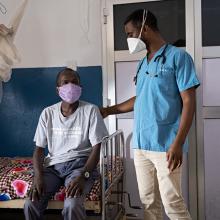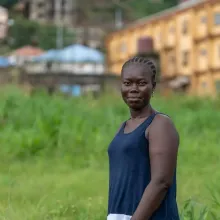HIV and Tuberculosis
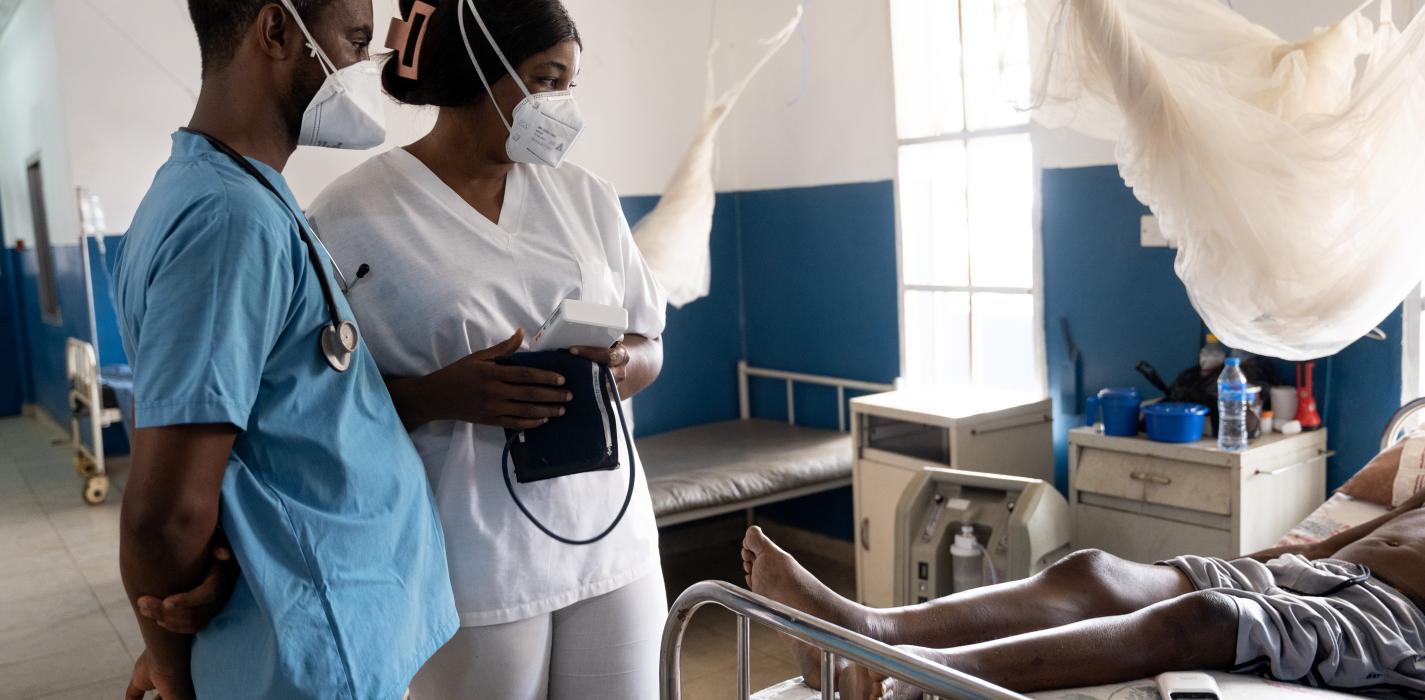
PIH focuses on tuberculosis (TB) and HIV care across all levels, from the community to the primary care level to hospitals.
Our Impact
With a treatment success rate above the global average, we treat multidrug-resistant TB (MDR-TB) patients in Sierra Leone.
-
1,100patients
have been enrolled in the MDR-TB treatment program since 2017
-
78%Treatment Success Rate
for MDR-TB at Lakka Government Hospital
-
5,000individuals
were screened for TB and HIV across Kono District in 2025
Lakka Government Hospital
Lakka Government Hospital opened the country’s first multidrug-resistant tuberculosis (MDR-TB) treatment program in 2017. Sierra Leone’s National Leprosy and Tuberculosis Control Program’s (NLTCP) partnered with PIH-SL to support MDR-TB activities by providing technical expertise, recruiting staff, facilitating training and mentorship, procuring medication, and delivering care on-site. Out of the total capacity of 150 beds, 100 are dedicated to MDR-TB patients. PIH supports the Ministry of Health with the implementation of the new oral WHO-recommended treatment protocols (BPaLM). With this treatment regimen, medication can be taken orally as opposed to injections previously. This leads to fewer side effects, better treatment, and more adherence. Now, hospitalized patients are discharged about four weeks after starting the medication, cutting hospitalization time in half. Since 2017, over 1,100 patients have been enrolled in the MDR-TB treatment program with a treatment success rate of about 78%, above the global average of 59%. Patients admitted at Lakka receive nutritional and psychosocial support, including rehabilitation and counseling support, ensuring comprehensive mental health care. For outpatients, follow-up services facilitate ongoing support.
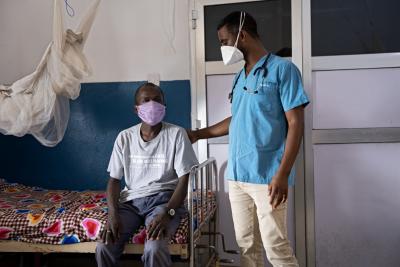
Dr. Girum B. Tefera, HIV/TB program manager, sees MDR-TB patient Mohamed at Lakka Government Hospital.
Chiara Herold / PIH
Decentralizing TB Care
In June 2022, the treatment center for drug-resistant tuberculosis (DR-TB) opened at Koidu Government Hospital (KGH) with the goal of decentralizing care. Now, patients from the east and south of the country can receive the same high standard of treatment as those in the capital, without having to travel far away from their communities. Since opening, 57 DR-TB patients have been enrolled for treatment.
Sierra Leone is one of 30 countries with the highest burden of TB globally, but each year, many cases are missed. To address this PIH-SL introduced community-based interventions for TB screening. Community interventions like screening with portable X-ray machines, contact tracing through CHWs, and expanding the use of the GeneXpert, a machine that quickly tests clinical samples, are contributing to the increase in notified patients who can now receive care. In 2025, over a 61-day period, more than 5,000 individuals were screened for HIV and TB, with active follow-up care provided to those who tested positive.
At the hospital, active screening, especially for children, has also increased, enhancing access to early diagnosis and treatment. All patients that are admitted to KGH’s infectious disease unit for MDR-TB treatment receive nutritional support on their journey back to health.
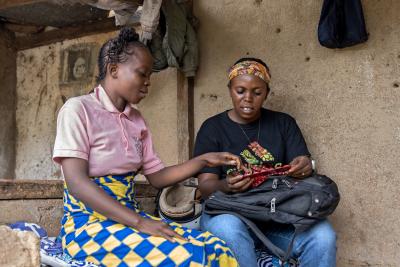
Community health worker Mariama Yomba (right) conducts a home visit with Alice, a patient affected by tuberculosis.
AbuBakarr Tappiah Sesay / PIH
HIV Care
Kono District has a high prevalence of HIV and stigma, discouraging people from seeking services and treatment. To connect people to care, PIH is supporting the District Health Management Team, the National HIV/AIDS Control Program, and partners with community screening activities. This includes integrating HIV screening into other community programs like TB testing. CHWs work to link people diagnosed with HIV to appropriate care, treatment, and social support. Overall, 85% of patients are linked to care at PIH-supported facilities. We have also implemented treatment for HIV-related cancers (e.g. Kaposi Sarcoma) by conducting lifesaving chemotherapy. In 2024, a special pediatric HIV clinic was established to improve care and prevention in children. Within six months, all children who were previously unreachable for follow-up treatments re-engaged in care. Every eligible child now receives TB prevention treatment to prevent HIV and TB co-infections.
